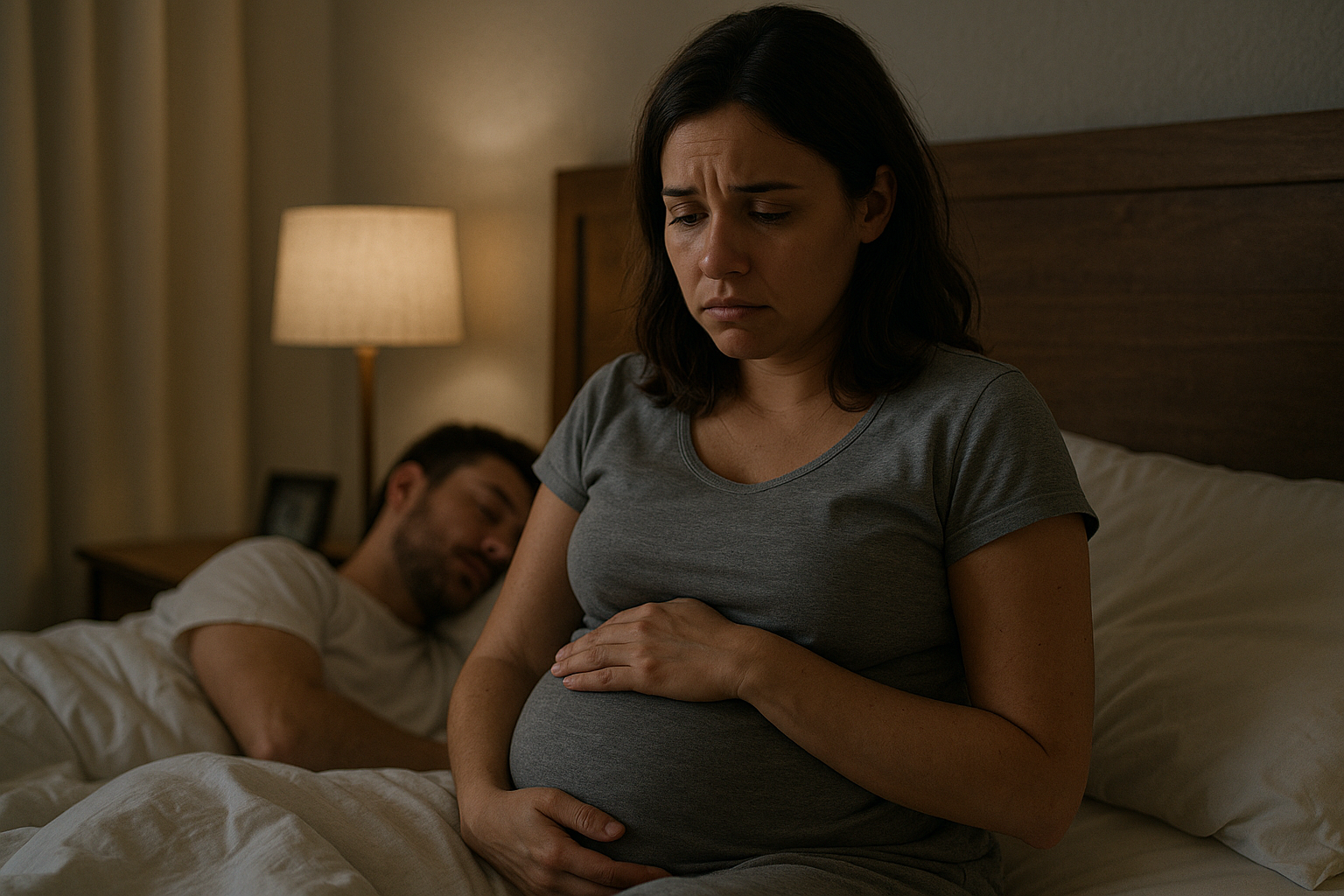Pregnancy is a unique time in a woman's life, but it's often accompanied by sleep disturbances, particularly nighttime insomnia. Several scientific causes explain why pregnant women experience these difficulties getting restful sleep. Understanding these causes allows you to adopt appropriate strategies to sleep better and protect the health of both mother and baby.
Major hormonal changes
The first major factor explaining insomnia during pregnancy is related to significant hormonal changes. Levels of hormones like progesterone and estrogen increase drastically. Progesterone, essential for maintaining pregnancy, also acts as a sedative during the day, causing daytime sleepiness. However, at night, this hormone raises body temperature, which can make it difficult to fall asleep. Furthermore, these fluctuations disrupt the production of melatonin, the hormone that regulates the sleep-wake cycle, causing frequent awakenings and fragmented sleep.
Physical discomfort and bodily changes
As pregnancy progresses, physical changes become more pronounced. The growing uterus puts pressure on the bladder, causing frequent urges to urinate at night, interrupting sleep. In addition, this pressure can lead to digestive problems such as gastroesophageal reflux, which causes heartburn. Added to this are muscle pain, especially in the back, and leg cramps that make it difficult to fall asleep and cause nighttime awakenings. A growing belly often makes it difficult to find a comfortable sleeping position, especially during the third trimester.
Specific sleep disorders related to pregnancy
Certain sleep disorders are more common in pregnant women and affect sleep quality. These include restless legs syndrome, characterized by involuntary leg movements, and obstructive sleep apnea syndrome (OSAS), caused in particular by weight gain and hormonal changes. These disorders cause micro-awakenings that impair sleep continuity and lead to significant daytime fatigue. In addition, the baby's movements, especially in late pregnancy, frequently wake the mother.
Psychological factors: stress and anxiety
Emotional factors also play a crucial role. Stress, anxiety, and worries about the baby's health and delivery are common and can prevent the relaxation needed to fall asleep easily. Stress is particularly intense in early and late pregnancy, when insomnia is most common. These psychological issues are often exacerbated by the other physical discomforts mentioned.
Evolution of insomnia by quarter
-
First quarter : Large hormonal fluctuations, anxiety and nausea make this stage difficult for sleep.
-
Second quarter : often a temporarily calmer phase with improved sleep.
-
Third quarter : physical discomfort (pain, cramps), pressure from the uterus, frequent need to urinate, baby movements and stress related to childbirth cause increased insomnia.
Tips for better sleep during pregnancy
Although this is a period with real physiological constraints, certain good practices can help reduce insomnia:
-
Maintain a regular bedtime and wake-up schedule.
-
Avoid long naps during the day.
-
Limit fluid intake before bedtime to reduce nighttime urges to urinate.
-
Find a comfortable position, ideally on your left side, with pillows to support your stomach and between your legs.
-
Practice relaxing activities (gentle yoga, meditation) to reduce stress.
-
Avoid blue light from screens before sleeping.
-
Choose a light dinner and avoid spicy foods that promote heartburn.
Important exclusion
It is crucial to clarify that Easleep Premium is not suitable for pregnant women . Insomnia during pregnancy requires specific approaches, often under medical supervision, and treatments or supplements intended for the general public are not always safe for this population.










Share:
What is the effective solution for chronic insomnia?
Fight insomnia effectively with Easleep Premium